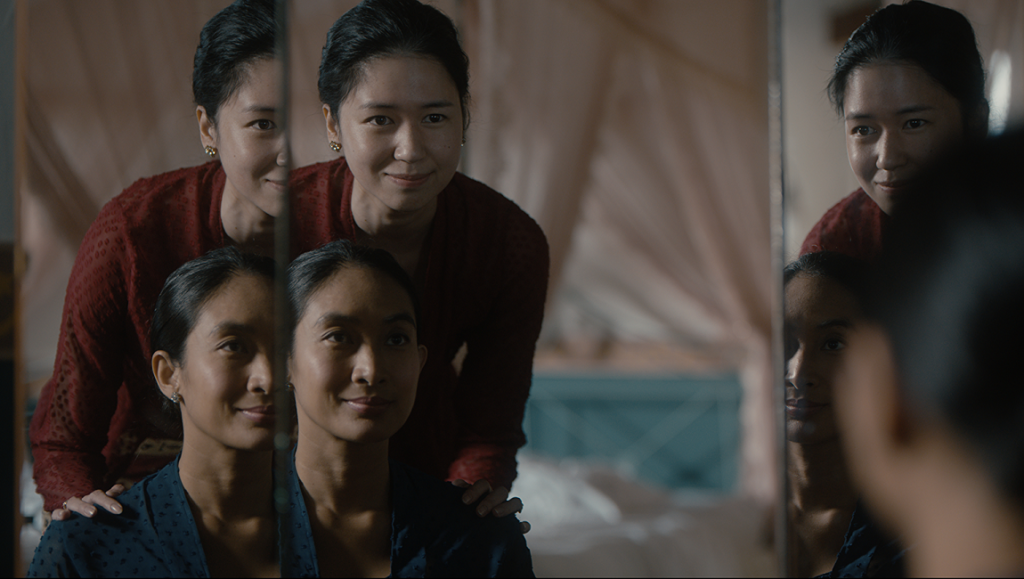Kamila Andini’s latest film considers the tragedy of life in her home nation of Indonesia. But despite this scope of Before, Now & Then, it’s an intimate character study, focused on a woman named Nana (Happy Salma) whose own life has been repeatedly blown off course by the political turmoil in her homeland. In a way, the film is about the tension between history and personal agency, as Nana tries to find ways to live according to her desires despite the forces impinging upon her.
With admirable subtlety, Andini maps Nana’s personal experiences of marriage, motherhood, and divorce onto the broader cultural and political (mis)fortunes of Indonesians, particularly those who, like Nana, do not belong to the Sundanese ethnic majority. Nana knows her second husband Darga (Arswendi Nasution) is cheating on her, yet those around her strongly suggest that she’s lucky he married her at all. Andini displays the sexism and racism Nana faces, but avoids the trap of horizontal violence. Ironically, the one person Nana can rely on emotionally is one of Darga’s mistresses, Ino (Laura Basuki). And Nana’s unexpected decision to leave her family behind happens to coincide with the fall of Indonesia’s founding leader, Sukharno, and the installation of pro-Western dictator Suharto.
In many respects, Before, Now & Then is Andini’s most fully realized film. Her second feature, 2017’s The Seen and Unseen, played several Western film festivals, and was notable for its dark, hypnotic atmosphere and the infusion of supernatural elements into an otherwise realistic framework. However, the clear influence of Apichatpong Weerasethakul hangs heavy over the film, sometimes distractingly so. Her next film, Yuni, which won the Platform prize at the 2021 Toronto International Film Festival, was a young girl’s coming-of-age drama as light and breezy in its disposition as The Seen and Unseen was grim. Still, Andini hadn’t found her directorial voice quite yet. In its themes and visual style, Yuni was very reminiscent of the work of the late Malaysian filmmaker Yasmin Ahmad.
It’s not surprising that Andini approaches her work from a cinephilic standpoint. After all, she is the daughter of Garin Nugroho, who is possibly Indonesia’s greatest living filmmaker. And although Before, Now & Then finds Andini on surer creative footing, she has yet to completely emerge from what Harold Bloom called “the anxiety of influence.” This new film will almost immediately call to mind Wong Kar-wai’s 2000 masterpiece In the Mood For Love in its use of slow motion, its gliding camerawork, and Andini’s wall-to-wall deployment of Ricky Lionardi’s symphonic score. As with Wong’s film, Before, Now & Then fixates on the indelible stamp of the past on the present, which in Nana’s case entails mourning for her first husband and her father, who were abducted and “disappeared” by Indonesia’s anti-communist militias. Still, despite this tether to pronounced influence, Before, Now & Then is an accomplished combination of chamber drama and national allegory in its own right. Andini is gaining confidence with each subsequent film, and in a few years, she may very well claim her father’s mantle as her own.
DIRECTOR: Kamila Andini; CAST: Happy Salma, Laura Basuki, Arswendi Nasution, Arawinda Kirana; DISTRIBUTOR: Film Movement; IN THEATERS: August 25; RUNTIME: 1 hr. 43 min.


Comments are closed.